Bay Area Sudanese Americans gathered outside San Francisco City Hall on Saturday to protest the recent escalation of violence in the country, where a bloody power struggle has continued into a second week. The conflict has claimed the lives of over 400 people and injured over 3,000.
Bay Area Sudanese Americans Call for End to Violence in Sudan, Appeal for Support
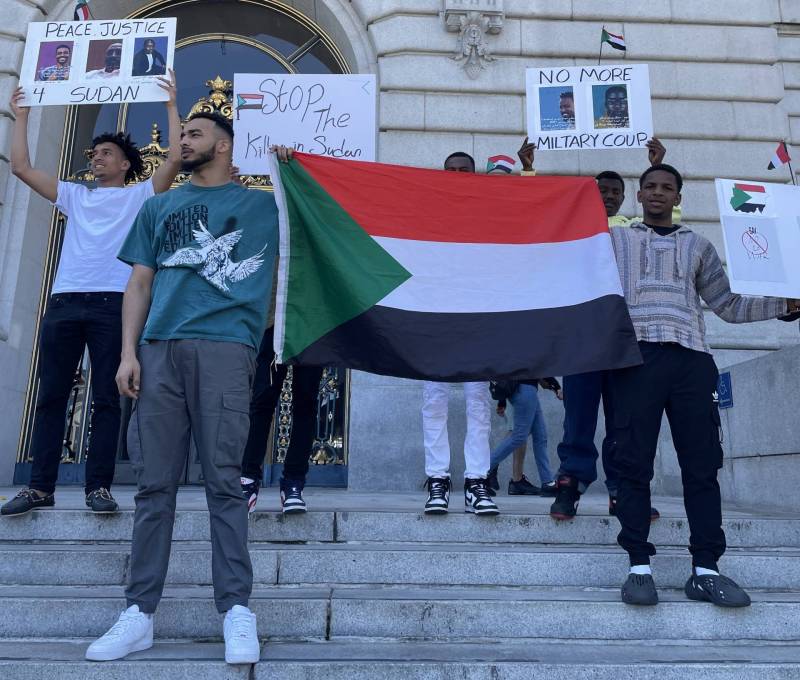
“We want to send a message to our local and federal leaders that this is a humanitarian crisis,” said Harith Elrufaie, president of the Sudanese Association for Northern California (SANC), which organized the rally. “Many of the people are here because they really can’t do anything other than just make their voice heard. They just all feel helpless. They just want to send this message of hope and love, that even though we’re thousands miles away, we’re still here by your side.”
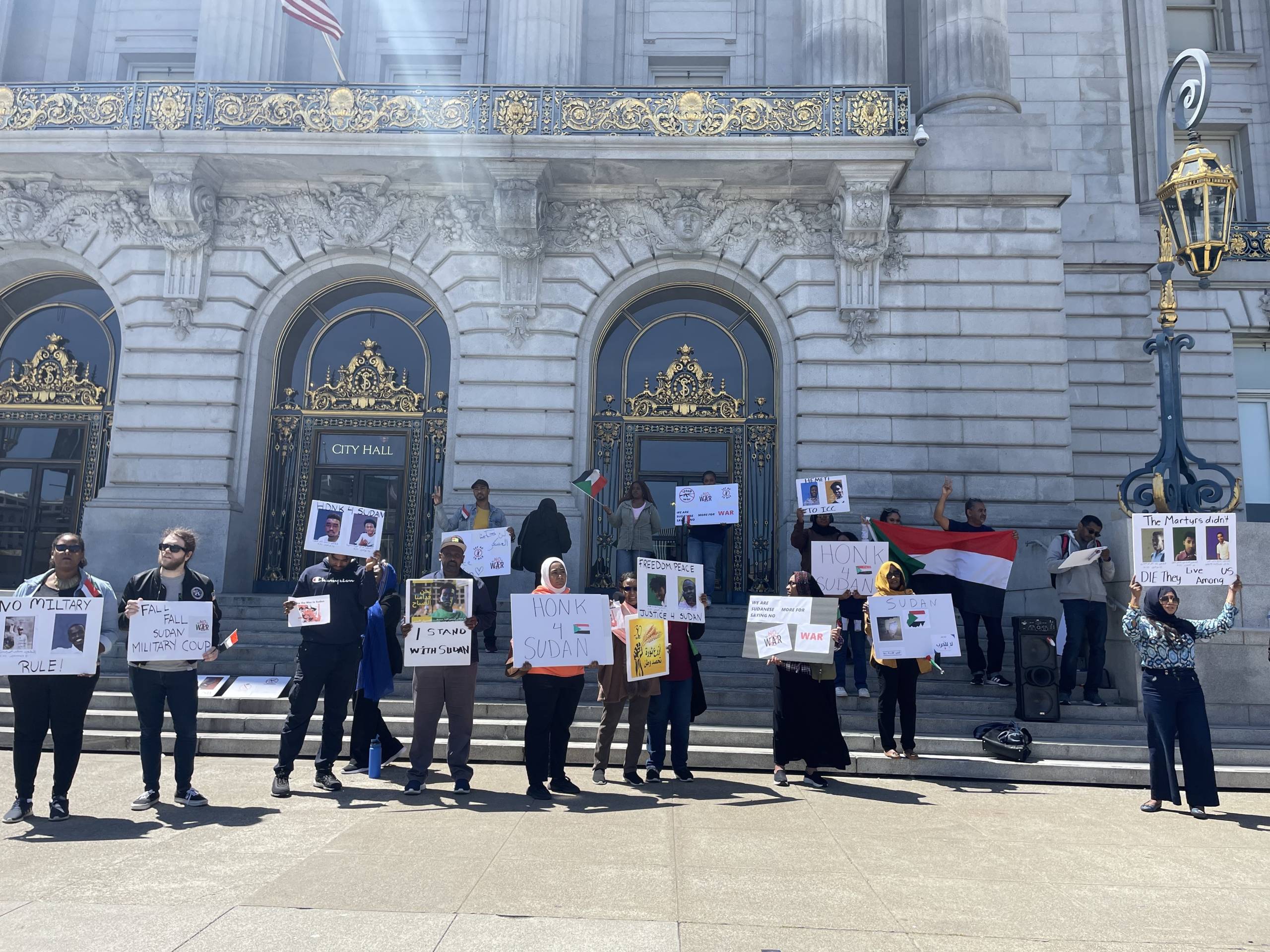
The conflict has pitted the Sudanese army, led by Gen. Abdel Fattah Burhan, against a powerful rival paramilitary faction, known as the Rapid Support Forces (RSF), led by Gen. Mohammed Hamdan Dagalo, and has derailed prospects for a democratic transition in the country, with both sides apparently intent on complete victory. The conflict comes 18 months after Burhan joined forces with his rival to seize power in a coup that cast aside Sudan’s pro-democracy forces.
SANC is using social media to call attention to the dire situation in Sudan, where they say indiscriminate attacks have been targeting residential areas and hospitals, and terrorizing families fleeing their homes in search of safety, food and water. SANC says many Sudanese Americans are stranded and unable to evacuate, and that the international community has been ineffective so far in providing aid.
“As Sudanese Americans, it is our right to denounce the violence and our duty to raise public awareness about the unfathomable situation in Sudan. We urge our local and national leaders to support us in our quest for the freedom and dignity that our people deserve,” Elrufaie said in a press release.
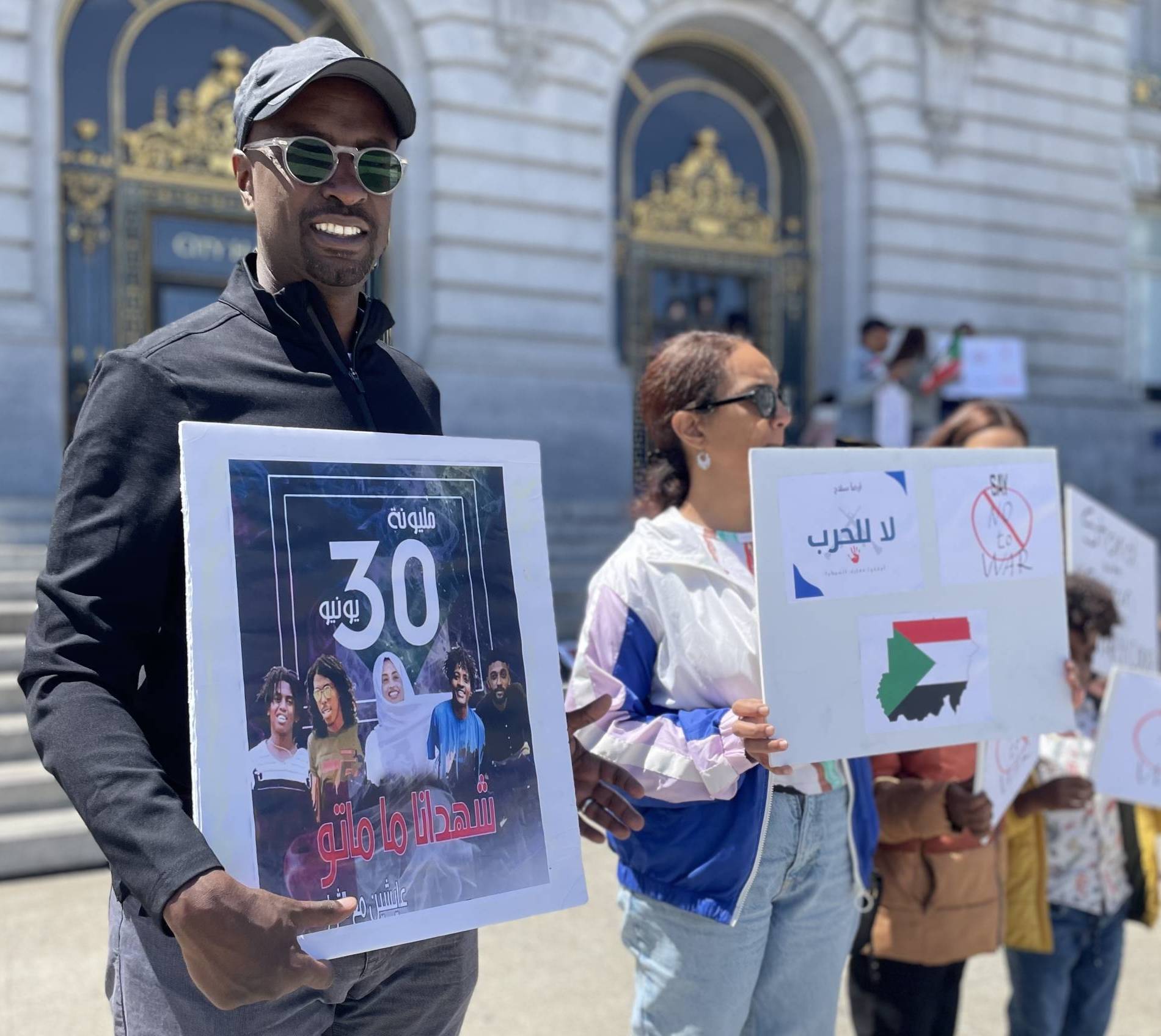
“All we’re asking for is freedom for the people there to stop killing innocent civilians, to transition to a democratic government,” said Salma Dali, a health care provider who left Sudan for the United States when she was a child because of a different conflict. She says most of her family is still in Sudan. “I’m hearing that people in the capital, Khartoum, are scared to leave their homes. There are air strikes. There are bombings. They burn down the markets. People don’t have access to medication.”
Dali said that roughly 70% of hospitals are also shut down. “As a health care provider myself, I can’t even imagine these innocent, helpless people who need medications, who need hospitalization, and who are now being left to fend for themselves,” she said.
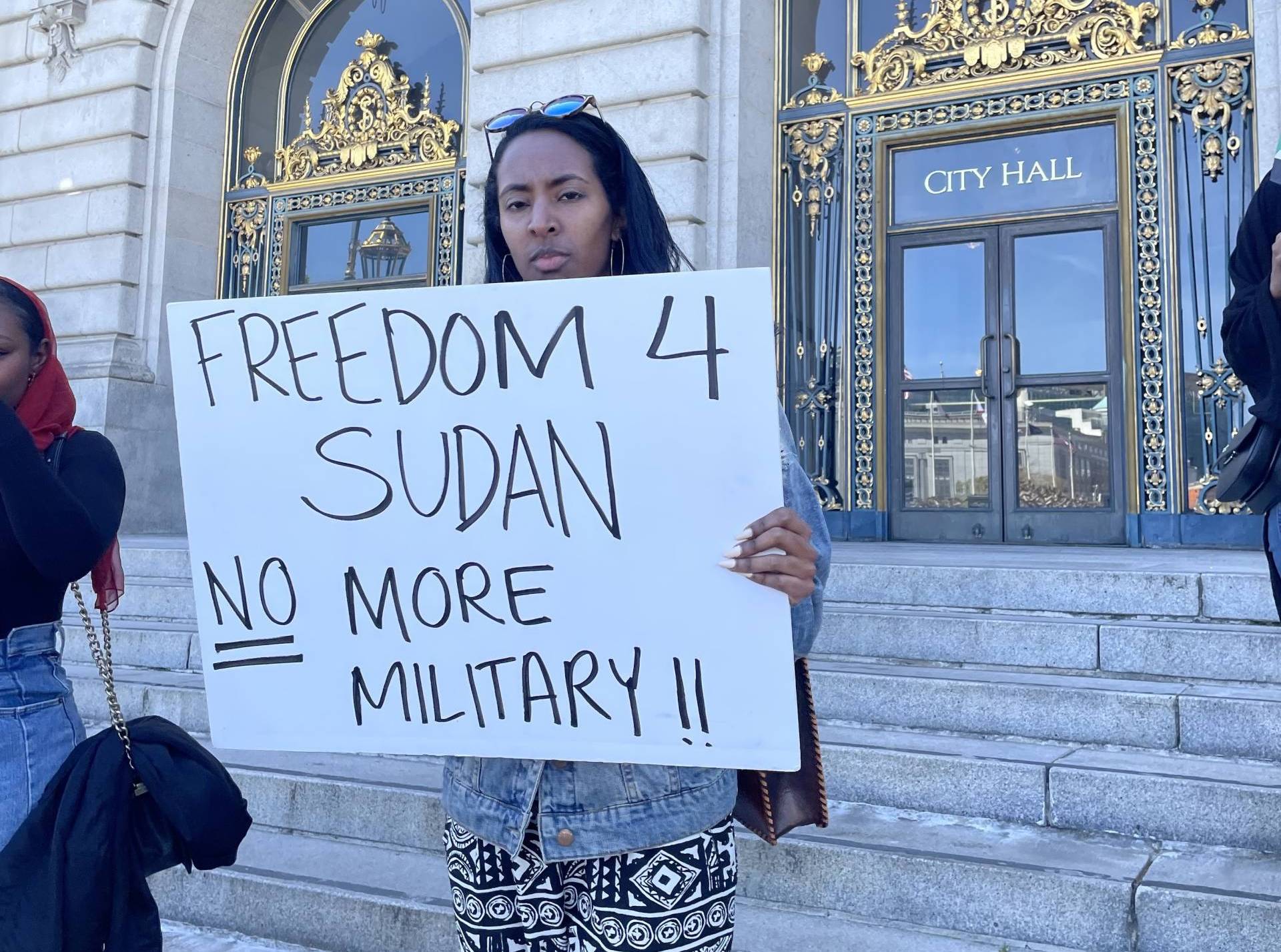
“We’re hoping the U.S. can help evacuate U.S. citizens,” said rally attendee Muhammed Salam, whose grandmother and aunt went to Sudan a week and a half ago, and are now unable to leave. “I can’t stop thinking about it. I have a lot of extended family that live there [but] they don’t have U.S. passports, so they can’t come here.”
Salam also emphasized the significance of this conflict occurring during Eid al-Fitr — the Muslim religious festival marking the end of the holy month of Ramadan, a time, he said, that should be about “peace and celebration.”
“We’re blessed enough to be able to celebrate here, yet back in Sudan they [are being] killed in the streets,” Salam said. “Kids are dying. Mothers are dying. People are having to evacuate for good. There’s chaos going on right now. And we’re just asking the people to help and spread awareness and donate.”
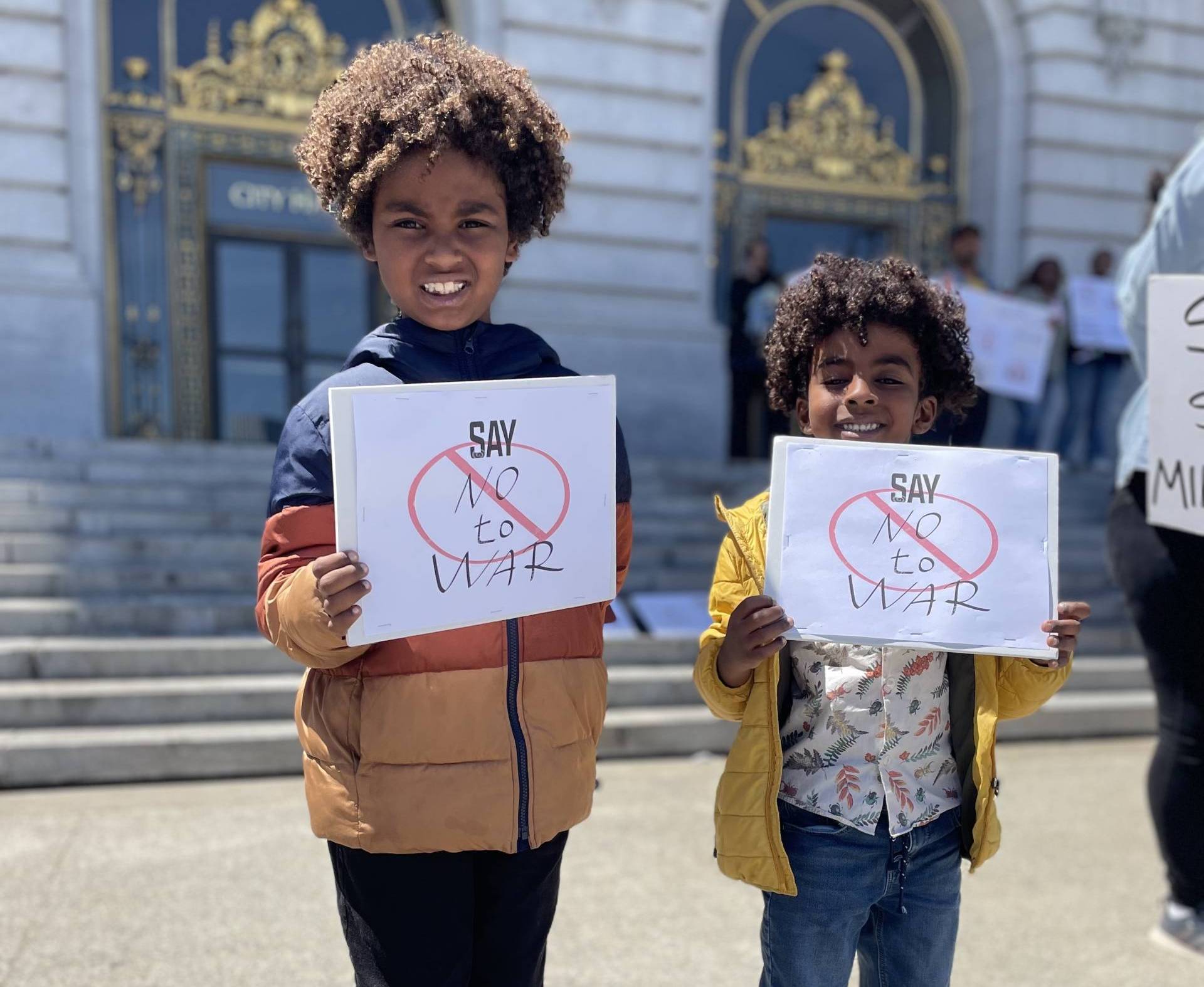
On Saturday, President Biden issued a statement saying the U.S. military extracted U.S. government personnel from Khartoum. However, the airport is currently not operating and the government does not have plans for a larger effort to evacuate U.S. citizens.
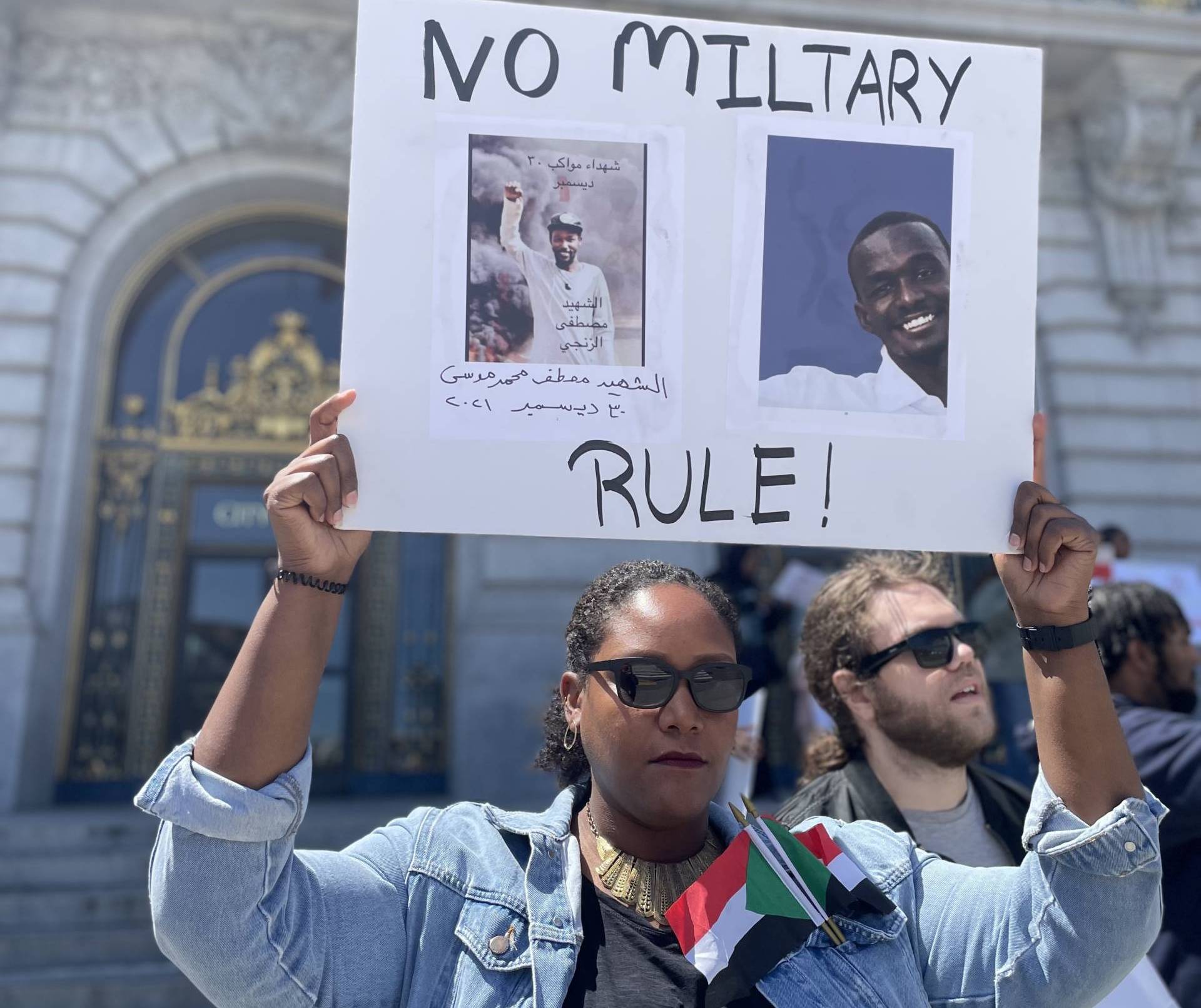
Dali said she wants people in the Bay Area and the U.S. to understand that the situation in Sudan is being caused by a minority of the people, “who are in a power struggle and that the majority of Sudanese people are strong and resilient and have tons of hope and want democracy.”
For Dali, it’s important for people to come together with the people of Sudan and call on the U.S. government to take action. “We really need all of our allies here to stand together with us,” she said.
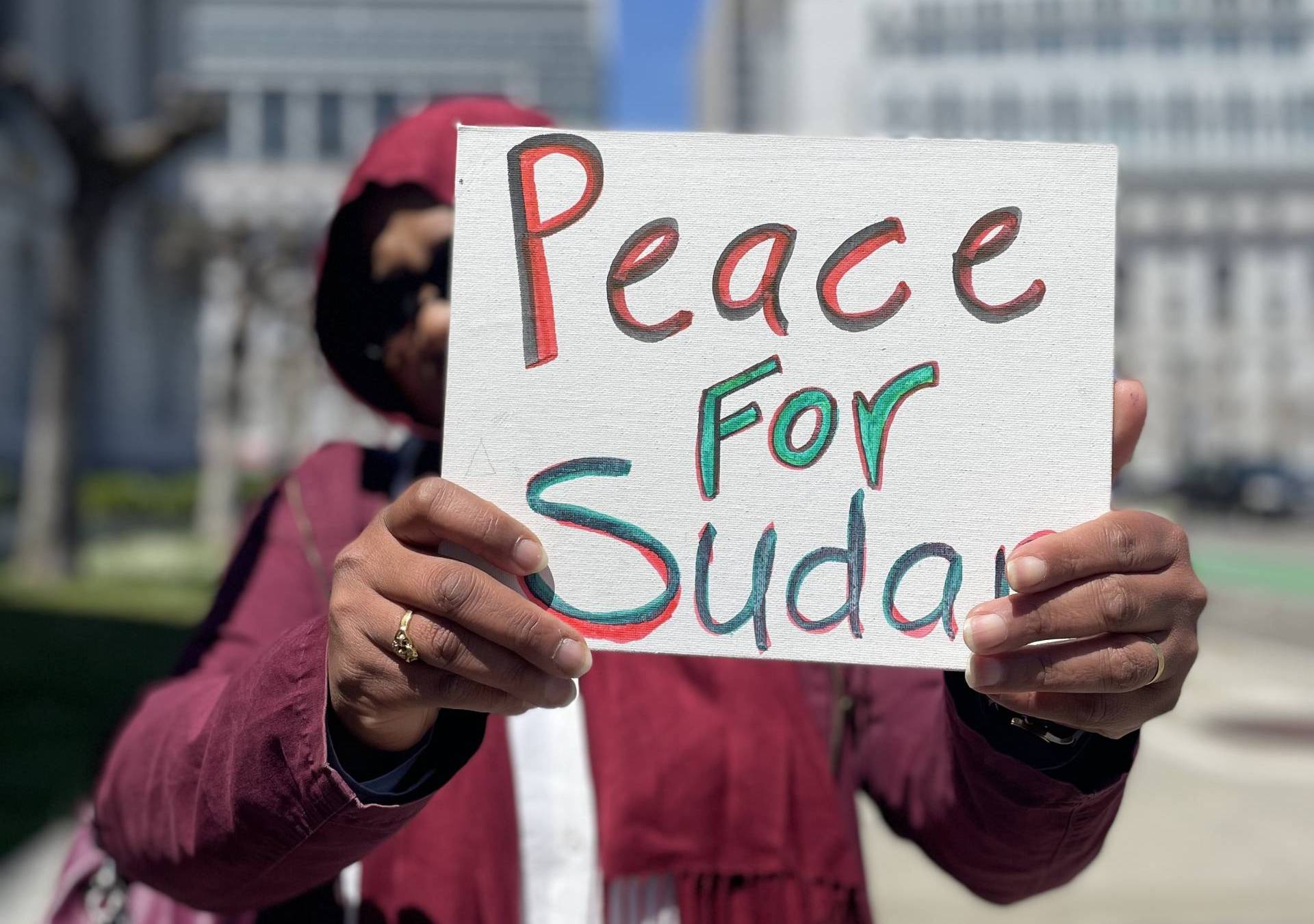
Here’s how you can help
The Sudanese American Physicians Association (SAPA) is a not-for-profit organization raising money to provide medical supplies and medicine to those affected by the violence.
Sadagaat-USA is accepting donations to provide medical exams, surgeries, food and water packages, and education programs. The organization is also collaborating with the American Sudanese Committee (ASC) to support the affected population through its emergency response program.
This story includes reporting by KQED’s Attila Pelit, Lakshmi Sarah and Billy Cruz, and by The Associated Press.